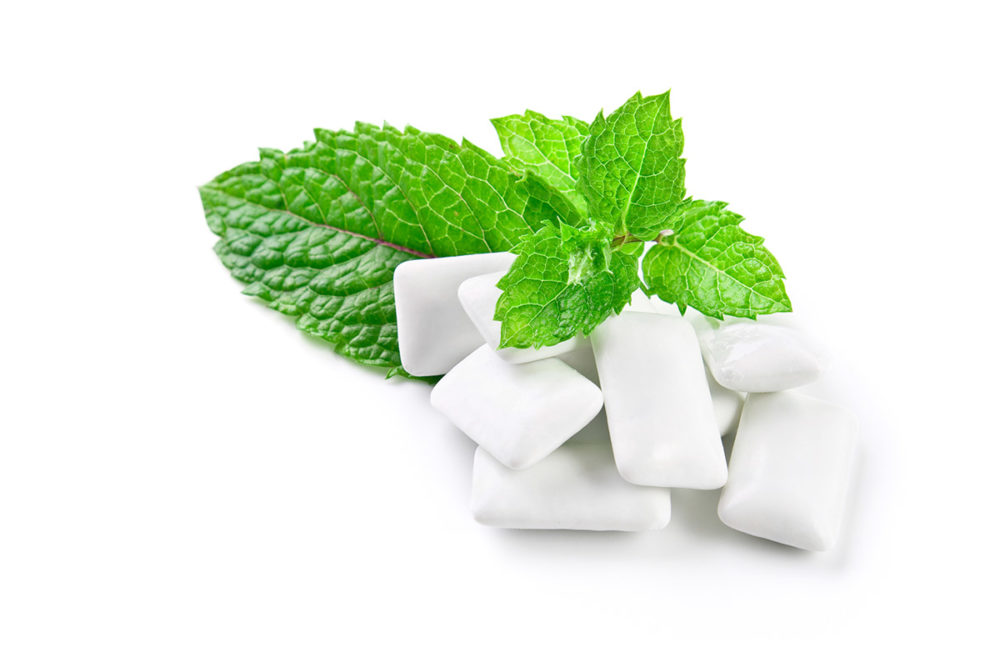
June 5, 2019
Why Xylitol is Good for Your Oral Health
Most of us are aware that sugar is a major culprit when it comes to tooth decay. The bacteria that we all have in our mouths use sugar to multiply, and when sugar is consumed, your mouth becomes more acidic for at least 30 minutes. That acidity weakens your tooth enamel and makes it more susceptible to bacteria that leads to tooth decay. You can read more about the impact of sugar and other foods on your oral health in this Dental Library article.
What is xylitol?
Xylitol is a sugar replacement that occurs naturally in most plant material, including many fruits and vegetables. It looks and tastes a lot like sugar, but doesn’t have the same harmful effects on your teeth and mouth – even better, xylitol actually has an opposite effect to that of sugar!

Is xylitol better for your teeth than sugar?
Xylitol is not metabolized by the bacteria in your mouth the way that sugar is, and that means that when you consume xylitol it does not create that acidic environment that sugar creates. In fact, in the right doses, it does just the opposite by helping to maintain an alkaline environment and preventing bacteria from sticking to your teeth. Some studies have suggested that xylitol can reduce plaque build-up and dental cavities by up to 80%!
Of course, proper dental hygiene at home and regular professional cleanings are always going to be crucial as well.
Other benefits of xylitol for your teeth and mouth.
Here are a few other ways that xylitol can benefit your oral health:
Slows demineralization and aids remineralization of tooth enamel. While tooth enamel cannot be regrown, it can be remineralized. Acid draws minerals like calcium and phosphates out of tooth enamel, so by creating a more alkaline environment, xylitol can help to prevent the demineralization of your tooth enamel. In addition, like fluoride, xylitol can help to remineralize your enamel and thereby strengthen your teeth.
- Increases saliva production. Some sugar-free chewing gums now use xylitol as a sweetener, and chewing these will maintain a presence of xylitol in your mouth for a prolonged period of time. In addition to the other benefits, this will actually stimulate the flow of saliva in your mouth, which is good for your oral health and also great news for those who suffer from xerostomia (dry mouth). Be sure to look for chewing gum that has grams vs milligrams of xylitol in order to benefit from its positive effects.
- Reduces infections in the mouth and nasopharynx. Since bacteria don’t thrive in the presence of xylitol, it can help to reduce infections both in the mouth and the nasopharynx (the upper part of the cavity behind the nose and mouth, connecting with the nasal cavity above the soft palate).
Cautions and good-to-knows.
All of the benefits mentioned above sound great, but it’s important to note that, like any sugar alcohol, xylitol might not be the best choice for people who suffer from bowel conditions such as irritable bowel syndrome, Crohn’s disease, and other conditions. There is a chance that xylitol can cause or amplify symptoms like gas, bloating, and diarrhea. In general, it’s always a good idea to check with your doctor or talk to your dentist before starting something new.
Xylitol and dogs.
While xylitol has many positive benefits for humans, it’s worth noting that it is very toxic to dogs. If your dog eats a product containing xylitol, take him to your vet right away, and always check that any dental water additive, toothpaste, or other dental product you give to your dog does not contain xylitol.
Book Your FREE Consultation Today!
To book an appointment for a cleaning, a specific concern or even a friendly consultation fill in the following and we will contact you promptly.